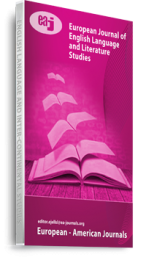Sylvia Plath’s poetry offers a wide range of ideas and themes. The article uses Derridian deconstructive ideology to break up the meanings of the text and highlight the wide range of meanings it offers to the readers of different contexts. Deconstruction is the theory that challenges the centrality of any phenomenon and breaks up its structures to generate endless modes of signification. In this article, the study deconstructs Plath’s poems to generate a plurality of meanings related to human behaviors and psychology. It would be debated that various psychic states emerge in her poetry that resists any uniform reading of her poetry. It will be argued that deconstructing the text creates a multiplicity of meanings related to the human psyche and attitudes. This aspect of her work adds meaningfulness to her text and enables the readers to bring out a plurality of meanings associated with a particular mood and behavior. Carl Jung (1975) states that poetry is instrumental in understanding the psyche of the poet. The archetypal patterns and symbols that are recurrent in Plath’s poetry are the expressions of the psychic continual potential for transformation. Her themes are universal because they deal with the traumatic nature of human experience. That is the reason her poetry has influenced half a century after her committing suicide in February of 1963.
Deconstruction of Psychic Issues in Plath’s Poetry
() , , (), –
Abstract
![]()
This work by European American Journals is licensed under a Creative Commons Attribution-NonCommercial-NoDerivs 4.0 Unported License
Recent Publications
Shadows of Madness: Unveiling Imperialism and Psychological Collapse in Joseph Conrad’s Heart of Darkness
Read Full Article »The Effectiveness of Task-Based Learning for Improving Speaking Fluency Among Adult ESL Learners
Read Full Article »Impact Factor: 7.23
Print ISSN: 2055-0138
Online ISSN: 2055-0146
DOI: https://doi.org/10.37745/ejells.2013
Author Guidelines
Submit Papers
Review Status
British Journal of Marketing Studies (BJMS)
European Journal of Accounting, Auditing and Finance Research (EJAAFR)
European Journal of Business and Innovation Research (EJBIR)
European Journal of Hospitality and Tourism Research (EJHTR)
European Journal of Logistics, Purchasing and Supply Chain Management (EJLPSCM)
Global Journal of Human Resource Management (GJHRM)
International Journal of Business and Management Review (IJBMR)
International Journal of Community and Cooperative Studies (IJCCS)
International Journal of Management Technology (IJMT)
International Journal of Small Business and Entrepreneurship Research (IJSBER)
British Journal of Education (BJE)
European Journal of Training and Development Studies (EJTDS)
International Journal of Education, Learning and Development (IJELD)
International Journal of Interdisciplinary Research Methods (IJIRM)
International Journal of Quantitative and Qualitative Research Methods (IJQQRM)
International Journal of Vocational and Technical Education Research (IJVTER)
British Journal of Earth Sciences Research (BJESR)
British Journal of Environmental Sciences (BJES)
European Journal of Computer Science and Information Technology (EJCSIT)
European Journal of Material Sciences (EJMS)
European Journal of Mechanical Engineering Research (EJMER)
European Journal of Statistics and Probability (EJSP)
Global Journal of Pure and Applied Chemistry Research (GJPACR)
International Journal of Civil Engineering, Construction and Estate Management (IJCECEM)
International Journal of Electrical and Electronics Engineering Studies (IJEEES)
International Journal of Energy and Environmental Research (IJEER)
International Journal of Engineering and Advanced Technology Studies (IJEATS)
International Journal of Environment and Pollution Research (IJEPR)
International Journal of Manufacturing, Material and Mechanical Engineering Research (IJMMMER)
International Journal of Mathematics and Statistics Studies (IJMSS)
International Journal of Network and Communication Research (IJNCR)
International Research Journal of Natural Sciences (IRJNS)
International Research Journal of Pure and Applied Physics (IRJPAP)
British Journal of English Linguistics (BJEL)
European Journal of English Language and Literature Studies (EJELLS)
International Journal of African Society, Cultures and Traditions (IJASCT)
International Journal of Asian History, Culture and Tradition (IJAHCT)
International Journal of Developing and Emerging Economies (IJDEE)
International Journal of English Language and Linguistics Research (IJELLR)
International Journal of English Language Teaching (IJELT)
International Journal of Agricultural Extension and Rural Development Studies (IJAERDS)
International Journal of Animal Health and Livestock Production Research (IJAHLPR)
International Journal of Cancer, Clinical Inventions and Experimental Oncology (IJCCEO)
International Journal of Cell, Animal Biology and Genetics (IJCABG)
International Journal of Dentistry, Diabetes, Endocrinology and Oral Hygiene (IJDDEOH)
International Journal of Ebola, AIDS, HIV and Infectious Diseases and Immunity (IJEAHII)
International Journal of Entomology and Nematology Research (IJENR)
International Journal of Environmental Chemistry and Ecotoxicology Research (IJECER)
International Journal of Fisheries and Aquaculture Research (IJFAR)
International Journal of Horticulture and Forestry Research (IJHFR)
International Journal of Micro Biology, Genetics and Monocular Biology Research (IJMGMR)
International Journal of Nursing, Midwife and Health Related Cases (IJNMH)
International Journal of Nutrition and Metabolism Research (IJNMR)
International Journal of Public Health, Pharmacy and Pharmacology (IJPHPP)
International Journal of Weather, Climate Change and Conservation Research (IJWCCCR)
International Journal Water Resources Management and Irrigation Engineering Research (IJWEMIER)
British Journal of Psychology Research (BJPR)
European Journal of Agriculture and Forestry Research (EJAFR)
European Journal of Biology and Medical Science Research (EJBMSR)
European Journal of Botany, Plant Sciences and Phytology (EJBPSP)
European Journal of Educational and Development Psychology (EJEDP)
European Journal of Food Science and Technology (EJFST)
Global Journal of Agricultural Research (GJAR)
International Journal of Health and Psychology Research (IJHPR)
Global Journal of Arts, Humanities and Social Sciences (GJAHSS)
Global Journal of Political Science and Administration (GJPSA)
Global Journal of Politics and Law Research (GJPLR)
International Journal of Development and Economic Sustainability (IJDES)
International Journal of History and Philosophical Research (IJHPHR)
International Journal of International Relations, Media and Mass Communication Studies (IJIRMMCS)
International Journal of Music Studies (IJMS)
International Journal of Non-Governmental Organizations (NGOs) and Essays (IJNGOE)
International Journal of Physical and Human Geography (IJPHG)
International Journal of Sociology and Anthropology Research (IJSAR)
International Journal of Biochemistry, Bioinformatics and Biotechnology Studies (IJBBBS)
International Journal of Coal, Geology and Mining Research (IJCGMR)
International Journal of Geography and Regional Planning Research (IJGRPR)
International Journal of Library and Information Science Studies (IJLISS)
International Journal of Petroleum and Gas Engineering Research (IJPGER)
International Journal of Petroleum and Gas Exploration Management (IJPGEM)
International Journal of Physical Sciences Research (IJPSR)
International Journal of Scientific Research in Essays and Case Studies (IJSRECS)

